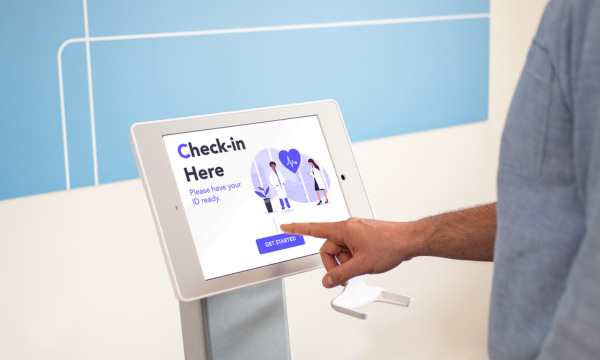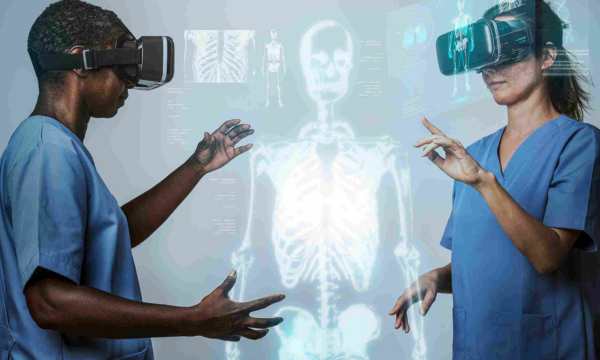How Smart Hospitals Make the Patient Journey Faster and Easier
Learn how smart hospitals are changing patients’ lives, making every stage of healthcare much simpler and more efficient.
Ad
Increasingly sought after by those who value comfort during delicate moments, these hospitals use modern resources to transform the entire care process.
In this article, you will clearly discover how the combination of technology and healthcare can save time and make the hospital experience less complicated.
It is easy to notice in everyday life how small technological changes create major differences when it comes to health.
The Evolution of Hospitals in the Patient Experience
The arrival of smart hospitals marks a true revolution in patient care and service. Instead of traditional methods filled with paperwork, queues, and lengthy processes, we now find dynamic environments organized by efficient technological systems.
These hospitals invest in seamless data integration, connecting departments and professionals quickly and securely, which eliminates errors and speeds up response times.
This means that your medical history can be accessed by professionals as soon as you arrive, making care safer and more personalized.
The patient experience becomes much smoother and more satisfying, with everything happening more predictably and with less waiting.
Additionally, these care centers can anticipate needs, plan resources, and ensure the best use of the healthcare team’s time. All these changes result in less anxiety, more comfort, and a calm journey from start to finish.
Simplified Scheduling: How AI Makes Booking Appointments Easier
When it comes to smart hospitals, one of the biggest innovations is the ease of scheduling or adjusting appointments.
In this new environment, Artificial Intelligence (AI) comes into play to analyze schedules, find available slots, and suggest the best time for each person quickly.
The patient only needs to access a website or app, choose what is needed, and that’s it—no waiting on the phone or going to the hospital just to book an appointment.
The AI used in these hospitals also sends automatic reminders to prevent missed appointments and improve attendance rates. If a rescheduling is necessary, the tool quickly presents new options, adapting to the patient’s routine.
This allows people to feel in control of their time and care, ensuring comfort and autonomy at every stage.
Digital Check-In to Reduce Wait Times and Optimize Service
In smart hospitals, digital check-in is one of the features that most helps eliminate queues and reduce waiting times.
As soon as the patient arrives, they can register their presence using self service kiosks or even through their mobile phone, in a simple and fast manner.
All data is updated in real time and automatically sent to the medical team responsible for care. This means fewer steps upon arrival and more time devoted to what really matters: care.
These service stations use digital check-in to improve the patient admission process, respecting each person’s time and promoting a smoother experience.
Besides improving the hospital’s internal flow, this tool helps ensure privacy and avoid unnecessary crowding in the reception area. In this way, patients feel respected from the very first moment, reinforcing the feeling of comfort.

Digital-check-in-in-smart-hospitals-(Source-Google)
Real Time Monitoring for Proactive Care
A major difference in smart hospitals is the real time monitoring of patients’ health.
Sensors and connected systems record every important piece of information, such as vital signs, clinical changes, and response to medications, throughout the patient’s stay.
These hospitals use Artificial Intelligence to analyze large volumes of data, making quick, evidence based decisions easier. This technology enhances care, as the healthcare team can act proactively, intervening when needed rather than only reacting to existing problems.
Monitoring also brings more comfort to patients, who receive personalized and appropriate attention at all times.
Chatbots and Virtual Assistants Supporting the Patient
In smart hospitals, chatbots and virtual assistants play a fundamental role in supporting patients from the very first contact. These technological solutions are always available to answer questions, address concerns, and assist with navigating the services offered.
This automated support makes life easier for those seeking quick answers, while also allowing staff more time to focus on more complex needs.
Furthermore, they use virtual assistants that send personalized reminders about appointments and exams, improving engagement and treatment adherence.
Communication becomes closer and available 24/7, always with clear and objective answers to frequently asked questions.
In smart hospitals, technology does not replace human contact, but rather expands the possibilities for welcoming, safety, and partnership at every stage of care.
AI in Building Individualized Treatment Plans
Smart hospitals completely change the way treatment plans are developed for each patient. Artificial Intelligence analyzes medical data, exams, family history, and health specifics, suggesting personalized options for each need.
Using this resource ensures that everyone receives the treatment that best suits their profile, improving outcomes and making the recovery process faster and safer.
Another advantage is that they provide the medical team with a complete and detailed overview, aiding decision making and avoiding trial and error. This means less time spent on ineffective therapies and more accurate treatment from the start.
For the patient, the main benefit is the assurance of receiving individual and targeted care, based on science and innovation.

Virtual-assistants-in-healthcare-(Source-Google)
Future Trends in Hospitals with the Help of AI
The future of smart hospitals is promising, with trends pointing toward an even greater integration of technology and healthcare.
One avenue is the expanded use of AI to predict outbreaks, identify epidemiological patterns, and plan resources proactively, anticipating the needs of both hospitals and communities.
We can also expect the continued growth of telemedicine, with remote consultations becoming more common and effective.
These hospitals are already testing wearable devices that monitor vital signs in real time, making it possible to provide care even outside the hospital. Another advance is in robotic surgeries, which are expected to become increasingly precise and safe.
These transformations make smart hospitals dynamic spaces for learning and innovation, ready to adapt services according to patient needs.
The future will bring environments that are even more flexible, transparent, and connected, taking the healthcare experience to a new level.
 Sleep Monitoring: Discover How AI Can Improve Your Rest
Sleep Monitoring: Discover How AI Can Improve Your Rest
Sleep monitoring can explain why you may wake up tired even after long hours in bed. Ad […]
More How AI and Virtual Reality are Transforming Medical Training
How AI and Virtual Reality are Transforming Medical Training
With each new technology, the field is expanding and new teaching methods are emerging, making medical training […]
More How AI Helps Create Lasting Healthy Habits
How AI Helps Create Lasting Healthy Habits
Building healthy habits doesn’t have to be complicated, especially when artificial intelligence can be your ally on […]
More